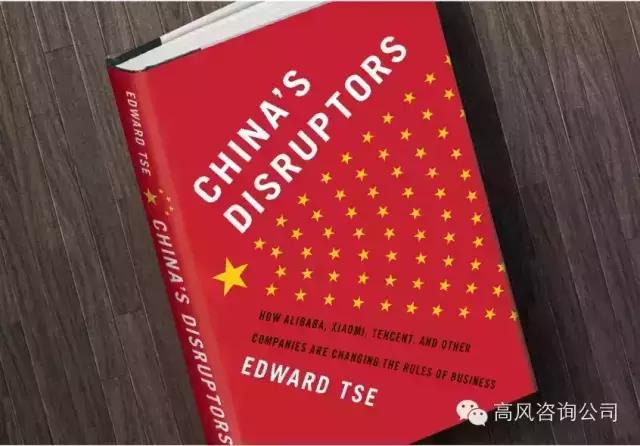
“A review that was recently posted on Amazon.com commenting on China’s Disruptors, the new book written by Gao Feng’s CEO, Dr. Edward Tse. It says, ‘His book is a depiction of a zeitgeist, the texture and atmosphere ofan age.'”
By Yukuefumei on September 18, 2015
Format: VerifiedPurchase
Edward Tse is well-known in the Chinese consulting industry, and knows his stuff,which is eminently evident from even a brief perusal of his new book, China’s Disruptors. This is a thin book and a quick read, but it stands out from a glut of other books on Chinese business for one simple reason: this book is one of the first to accurately capture what the fast-moving, innovative, and exciting new sectors of Chinese business feel like on the ground. (Disclaimer: I live and work in China.)
Tse is doing more than describing a historical trend or a new current in business practice (which he undoubtedly does very well). His book is a depiction of a zeitgeist, the texture and atmosphere of an age. For the average reader, even those fairly up- to-date on China, this is a rare glimpse into a world that is alien to both everyday Western experience and most assumptions about what China is and is not. I haven’t read a book like this since Zha Jianying’s Tide Players that feels like the author’s boots are on the ground, instead of simply hovering in some level of the stratosphere peering at China from on high.
Other reviewers will comment on the stories and business lessons in the book – to besure, this book has all this and more, in spades. This book will also eventually get blasted by those who think that Tse is looking at China through rose-colored glasses. (For example, the FT’s review: “In these pages,entrepreneurs are pushing boundaries, never bribing officials or pinching other companies’ blueprints. He hardly alludes to the close ties that China’s entrepreneurs must cultivate with the ruling Communist party, nor to tainted milk, crashing high-speed trains or dodgy wealth management products.”)The naïveté argument falls flat for two reasons.First,this criticism ignore’s the book’s central thesis, namely why the businesses and entrepreneurs that Tse chronicles are different from many of theircontemporaries. (Hence the book’s title.) Second, China is a complex enough society (arguably the most complex in the world) to encompass a multiplicity ofvalid stories and even narratives. A valid account of today’s China is enough of a challenge in and of itself.
Tse’s book need not be read as a be-all-and-end-all judgment on modern China – such abook, honestly speaking, will probably never exist. It does an exemplary job at addressing its topic, is accessible for most readers, and tells stories that may be difficult to otherwise access in such detail. Based on these merits, itshould be required reading for those interested in modern China, its businesslandscape, or its newest generation of citizens growing up in uncertain,turbulent, but exciting times.

